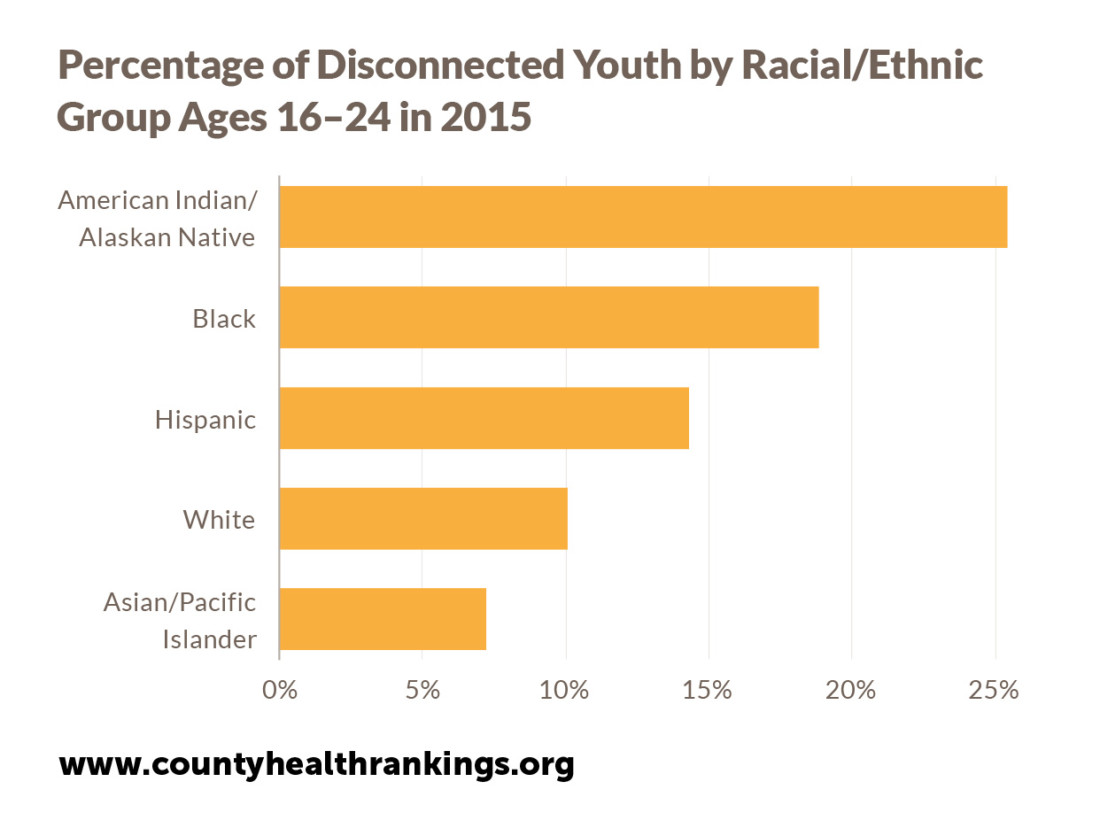
Share On Social!
More Latino youths are not in school and not working than white youths, according to a new report.
 These youth—also called “disconnected”—face hurdles as they become adults where they live. This includes lower rates of education, and higher rates of child poverty, unemployment, and teen births.
These youth—also called “disconnected”—face hurdles as they become adults where they live. This includes lower rates of education, and higher rates of child poverty, unemployment, and teen births.
1 in 8 U.S. youths ages 16-24 are “disconnected.”
Disconnection, a new measure in the new 2017 County Health Rankings, creates health and economic issues.
“Youth disconnected from opportunity—meaning the chance to advance in school, gain work experience, form relationships, and build social supports in the community—represent untapped potential to strengthen the social and economic vibrancy of our communities,” according to the report.
How to Help
The County Health Rankings, published each year by the Robert Wood Johnson Foundation (RWJF) and University of Wisconsin, shares ways to help.
It suggests employers, educators, and community leaders:
- Increase support and services to raise school attendance and graduation rates.
- Offer alternative learning models and training opportunities to help students develop social and work-ready skills.
- Provide employment experiences to prepare youth and young adults to get and keep good jobs.
Poverty and early childhood support are also important issues.
“Evidence shows that early childhood supports like investments in preschool and kindergarten programming, and childcare subsidies that can help establish safe and financially stable homes can make a difference in cultivating opportunity and health beginning in early life stages,” according to the report.
What Can be Done in Early Childhood
Salud America!, an RWJF national program to reduce Latino childhood obesity at UT Health San Antonio, focuses on early childhood support and healthier schools.
Many Salud America! Salud Hero stories, for example, support the early-childhood benefits of breastfeeding. A low rate of breastfeeding is associated with obesity, diabetes, and poor high school graduation rates, studies show.
Nikki Van Strien and other moms in largely Latino Arizona created the AZ Breastfeeding Bag Project. They provide all new breastfeeding mothers with a bag filled, not with formula sample, with educational material and breastfeeding supply samples.
Norma Sifuentes and Diana Montano also helped create a Baby Café to support San Antonio moms with breastfeeding peer counselors.
By The Numbers
84
percent
of Latino parents support public funding for afterschool programs



